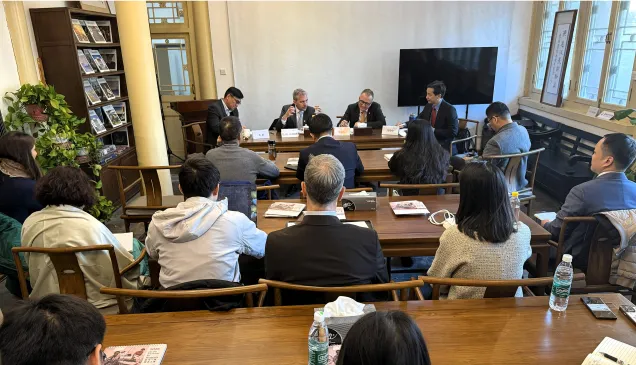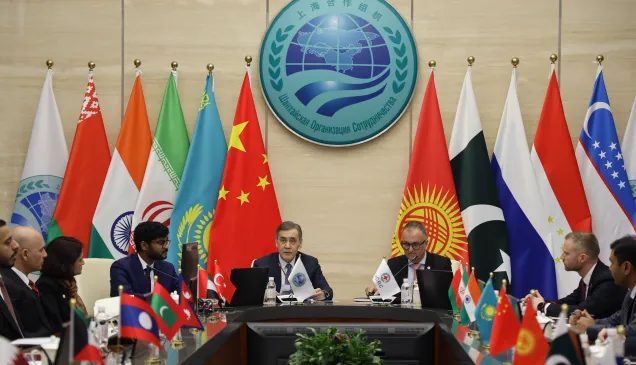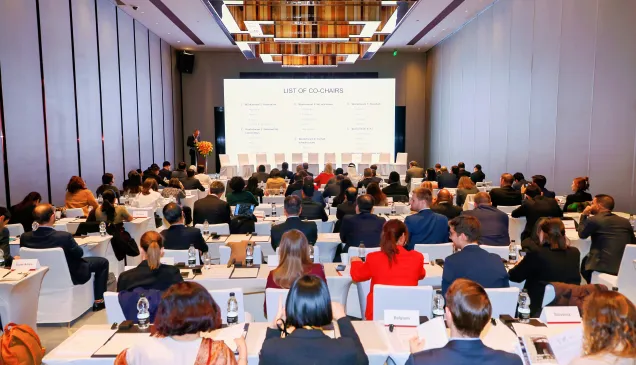China: Participants discuss how international humanitarian law fosters peace
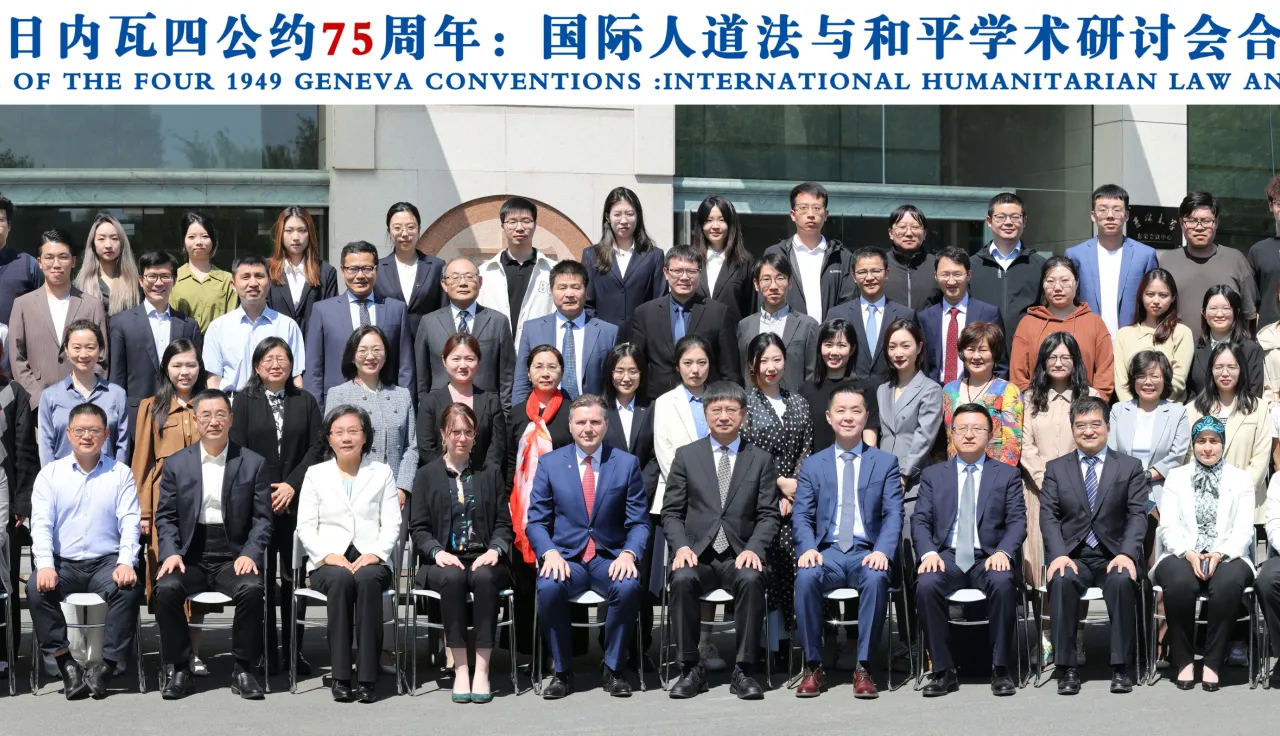
Beijing (ICRC) – The year 2024 marks the 75th anniversary of the adoption of the Four Geneva Conventions of 1949. On May 25, the International Committee of the Red Cross (ICRC) and Jilin University jointly organised a seminar titled "75 Years of the Four 1949 Geneva Conventions: International Humanitarian Law and Peace" in Changchun, Jilin Province, China. The event, sponsored by Jilin University's School of Law, Foreign-Related Rule of Law Institute, and Human Rights Institute, brought together over 80 experts and scholars from the Chinese ministries, the People's Liberation Army, the Red Cross Society of China, universities, think tanks, and the two host organizations.
The Geneva Conventions and their Additional Protocols form the core of International Humanitarian Law (IHL), which regulates the conduct of armed conflict and seeks to limit its effects. They protect people not taking part in hostilities and those who are no longer doing so. During the seminar, participants engaged in thematic discussions on "International Humanitarian Law and Peace" and "Protection of Cultural Property in Armed Conflict." The latter theme is covered by the Hague Convention for the Protection of Cultural Property in the Event of Armed Conflict.

Zhang Xi, President of Jilin University, extends a warm welcome to all participants. Photo: Jilin University
Zhang Xi, President of Jilin University, affirmed the significant role of IHL treaties in protecting those affected by armed conflicts and maintaining shared human values and heritage. He stressed that it is imperative to ensure the relevance of humanitarian principles in the context of complex, high-tech warfare, and to enhance the compliance and implementation of IHL to achieve peace.

Boris Kelecevic, Deputy Head of the ICRC Regional Delegation for East Asia, shares his views with seminar participants. Photo: Jilin University
Boris Kelecevic, Deputy Head of the ICRC Regional Delegation for East Asia, echoed a similar statement. "Compliance with IHL during armed conflict helps mitigate obstacles to peacemaking by addressing humanitarian concerns, safeguarding critical infrastructure, and fostering trust between adversaries."
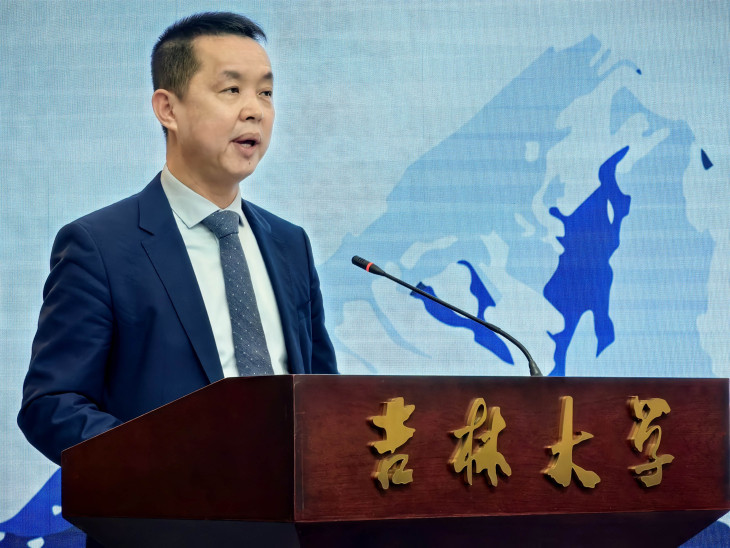
Gou Haibo, Deputy Director-General of the Treaty and Law Department of the Ministry of Foreign Affairs, delivers an address at the opening ceremony. Photo: Jilin University
China was one of the first countries to join the Geneva Conventions and their Additional Protocols, ratifying the four Geneva Conventions in 1956 and the 1954 Hague Convention and its First Protocol in 1999. Gou Haibo, Deputy Director-General of the Treaty and Law Department of the Ministry of Foreign Affairs, introduced China's proactive measures to promote IHL dissemination and implementation, including domestic legislation, integration into military doctrines and disciplinary norms, and the establishment of a national committee on IHL. The Deputy Director-General noted that China also advocates for strict adherence to IHL in international conflicts to effectively protect civilians and civilian infrastructure.

Dr. Anne Quintin, Head of the ICRC's Legal Advisory Services, delivers a keynote speech at the seminar. Photo: Jilin University
In her keynote speech, Dr. Anne Quintin, Head of the ICRC's Legal Advisory Services, emphasized that respecting IHL saves lives. She stressed, "For it to be effective, IHL needs today the same engagement and commitment that States showed when they drafted and joined the Geneva Conventions 75 years ago. IHL needs to be made a political priority everywhere."
All panelists emphasized the continued importance and relevance of IHL in modern armed conflicts and the need to promote respect for IHL. Meanwhile, Panelists also identified new challenges and encouraged the development and evolution of IHL to address new and emerging issues. Participants also discussed possible future projects that could advance IHL in China. States must enhance ratification, implementation, and dissemination, of IHL to promote its universal compliance.

Professor He Zhipeng, Dean of the Jilin University School of Law, presides over the opening ceremony. Photo: Jilin University
Founded in 1946, Jilin University is a national comprehensive university under the direct administration of China's Ministry of Education. Professor He Zhipeng, Dean of the Jilin University School of Law, highlighted the institution's longstanding commitment to collaboration with the ICRC. The university actively supports the ICRC's IHL summer sessions and has achieved outstanding results in the annual event of IHL Moot Court Competition.

Dr. Cai Liong, Executive Vice President of Jilin University, concludes the event with closing remarks. Photo: Jilin University
Both the ICRC and Jilin University expressed their commitment to deepening cooperation, leveraging this seminar as an opportunity to advance the ratification, implementation, and dissemination of IHL in China.

